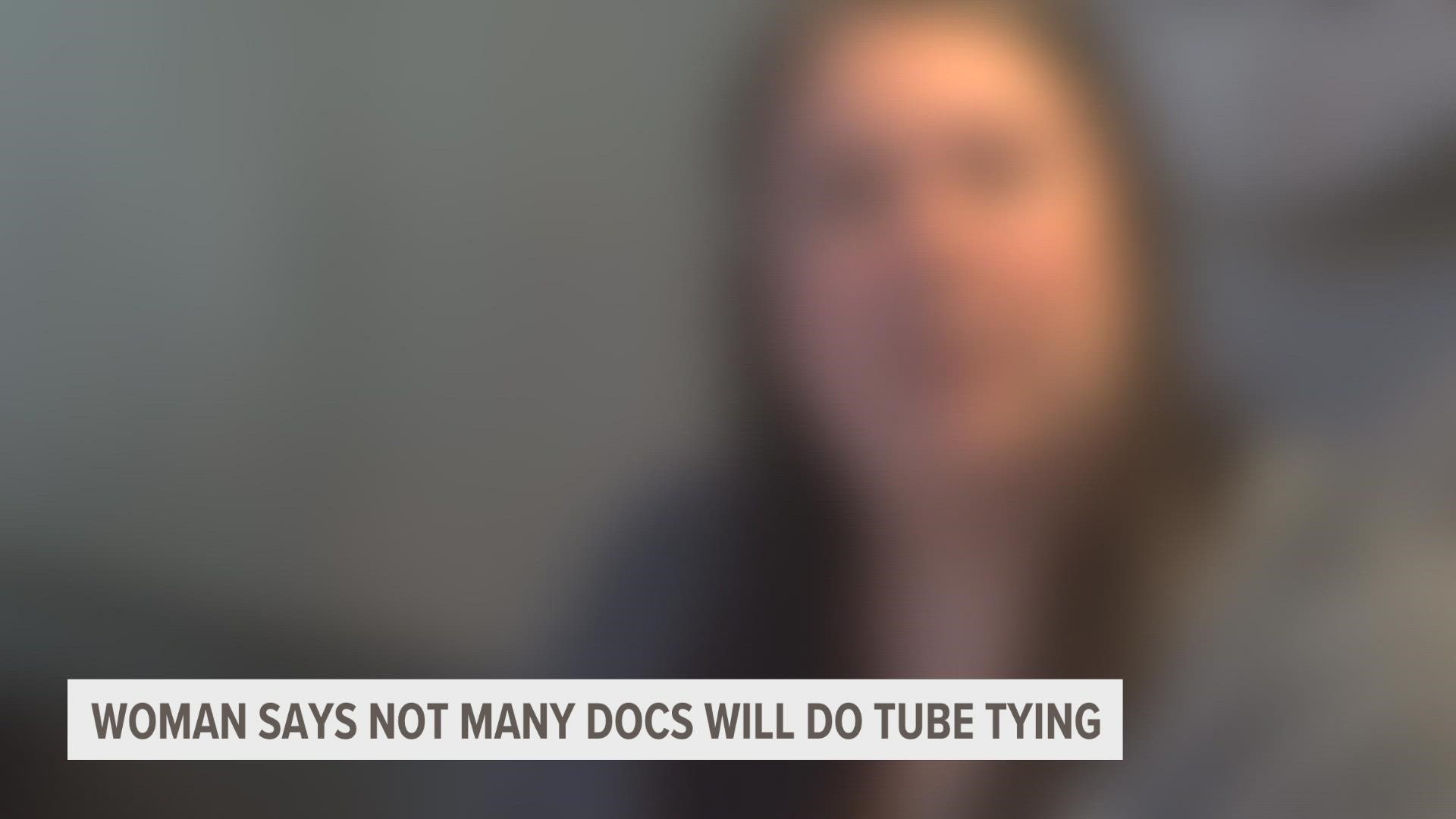OTTAWA COUNTY, Mich. — It's been more than a month now since the United States Supreme Court overturned Roe vs. Wade, and in that time, many OB/GYN's have seen an increase in requests for sterilization procedures from women.
But for one West Michigan woman, she said she's had an extremely hard time finding a doctor who will sterilize her.
"It's just like other people know for sure that they want kids, I know for sure that I don't want kids," she said.
This Ottawa County woman asked to remain anonymous, so for this story, we'll refer to her as "Jane."
Jane said she's been trying to get sterilized, or get her tubes tied, since she was 18.
"I wasn't going to stop at 'no,'" she said, "I was going to find a doctor who was going to do this, no matter how many doctors it took for me to find one."
"And when Roe vs. Wade was overturned, I knew that it was my time to get this done," Jane added, "I had to get this done."
In Michigan, the legal age for women to be sterilized is 21, but even when she hit that age, Jane was consistently denied by several doctors. She even eventually created an extensive binder to take with her to appointments.
"It's a lot of stuff about my personal views on pregnancy, childbirth, and parenthood," Jane said, "but it also has my answers to questions that I know I'll get asked."
One of the most common questions she said she often gets, is what about other forms of contraception, like an IUD?
"I know that this procedure is intended to be permanent, and that's what I want," said Jane. "I'm sick of temporary contraceptives, I want a permanent solution."
Many OB/GYN's are also reluctant to perform a tubal ligation on women who are younger than thirty because they are concerned about the rate of regret, but some research shows that number isn't as high as some might expect.
Jane said she believes people just assume that all women want to have children just because they're women, but that isn't a fair assumption.
"The decision to not have kids should be just as respected as wanting to have kids if someone knows in their soul what is right for them," said Jane.
Nisha McKenzie, a Certified Physician Assistant and founder of the Women's Plus Health Collective in Grand Rapids said unfortunately, she wasn't surprised to hear about Jane's experience.
"I hear that quite often and I've definitely heard it more often since the overturning of Roe v. Wade," McKenzie said, "that people have known for decades that they don't want kids, but they just keep getting turned away."
McKenzie also said that the day after the overturning of Roe V. Wade, her office registered between forty and fifty new patients, and every single one of them were asking for consultations on either IUD's or sterilization.
McKenzie added that she's heard for years that people asking about getting sterilized for whatever reason are often questioned.
"Doctors will ask, what about regret, what if you change your mind, what if you have a different partner?" she said. "Patients will face all kinds of questions, sometimes even triggering or terrible ones."
"By the time people come to me, they've already worked through all of those things," added McKenzie, "so my job is not to make them question themselves, but just to educate them."
McKenzie said in her perspective, it's important to let patients know what the risks and benefits are, and tell about the data that is out there, although she even admits that some of it is outdated and not expansive.
"Beyond that, you just have the right to weigh your options and make your own choice," she said.
Now, at age 30, Jane has finally found an OB/GYN in Holland that will do the procedure.
"It has been years of research and feelings that have gone in to this," said Jane. "And at the end of the day, it is your body, and it should be up to you what you want to do with it."
According to the American College of Obstetricians and Gynecologists, there are a couple different types of sterilization procedures.
The first is tubal ligation, which is a surgical procedure that permanently closes, cuts, or removes pieces of the fallopian tubes. A bilateral salpingectomy is also surgical procedure that removes the fallopian tubes entirely. Both are permanent forms of birth control, but a salpingectomy is also used to prevent ovarian cancer.
According to KFF.org, under the American Care Act, most private insurance plans, plus Medicaid expansion programs now cover sterilization procedures for women for free.
►Make it easy to keep up to date with more stories like this. Download the 13 ON YOUR SIDE app now.
Have a news tip? Email news@13onyourside.com, visit our Facebook page or Twitter. Subscribe to our YouTube channel.

